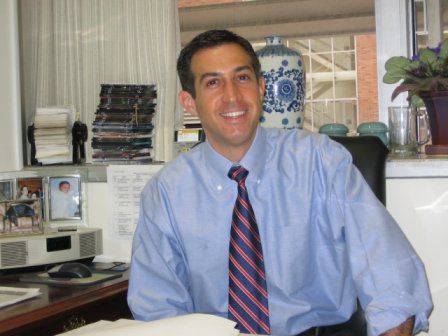
If Sudden Cardiac Arrest (SCA) strikes, there are worse places for it to happen than the environment in which Gary Schiller, MD, found himself on December 6, 2015.
Gary was attending the national meeting of The American Society of Hematologists in Orlando, Florida, when, during a 5K race, he experienced “chest pains, loss of power and breathing problems.” The last thing he remembers before losing consciousness is being asked by a colleague if he was able to get up. When there was no response to that question, his fellow medical professionals went to work administering CPR while another colleague retrieved an automated external defibrillator from the conference center and revived the 56-year-old, trim, athletic Schiller.
Gary doesn’t remember exactly which of his fellow hematologists administered the CPR but says, “they must have been good, (because) I had broken ribs and a broken sternum.”
Although he regained consciousness in a medical facility he described as “(a place) that looked like something out of the 1980s,” he says, “I got excellent care in Orlando.”
But what about the quick response that kept him alive until he arrived at the hospital? Gary is very adamant on that point.
Echoing a sentiment what the Sudden Cardiac Arrest Foundation has espoused since its inception, he said that when SCA strikes, “It really helps to be around people who know about CPR and how to use a defibrillator.” Promoting awareness and education in that life-saving art is part of the Foundation’s mission.
Doctors also found that Gary had a 99 percent blockage in the proximal left anterior descending coronary artery. Angioplasty and a stent cleared that blockage and Gary now has a strong, healthy ejection fraction (a measurement of how much blood the left ventricle pumps out with each contraction) of 64 percent.
Gary also emphasized that, although not very pleasant, coronary procedures such as heart catheterizations are an important part of early detection of heart disease.
“The non-invasive tests (stress tests, ECGs, et. al.) have a lot of false negative results,” he warns. That fact may have caused doctors to miss the blockage and possibly led to his SCA.
Dr. Schiller is a hematologist/oncologist at the David Geffen School of Medicine at UCLA.
By A. J. Caliendo
